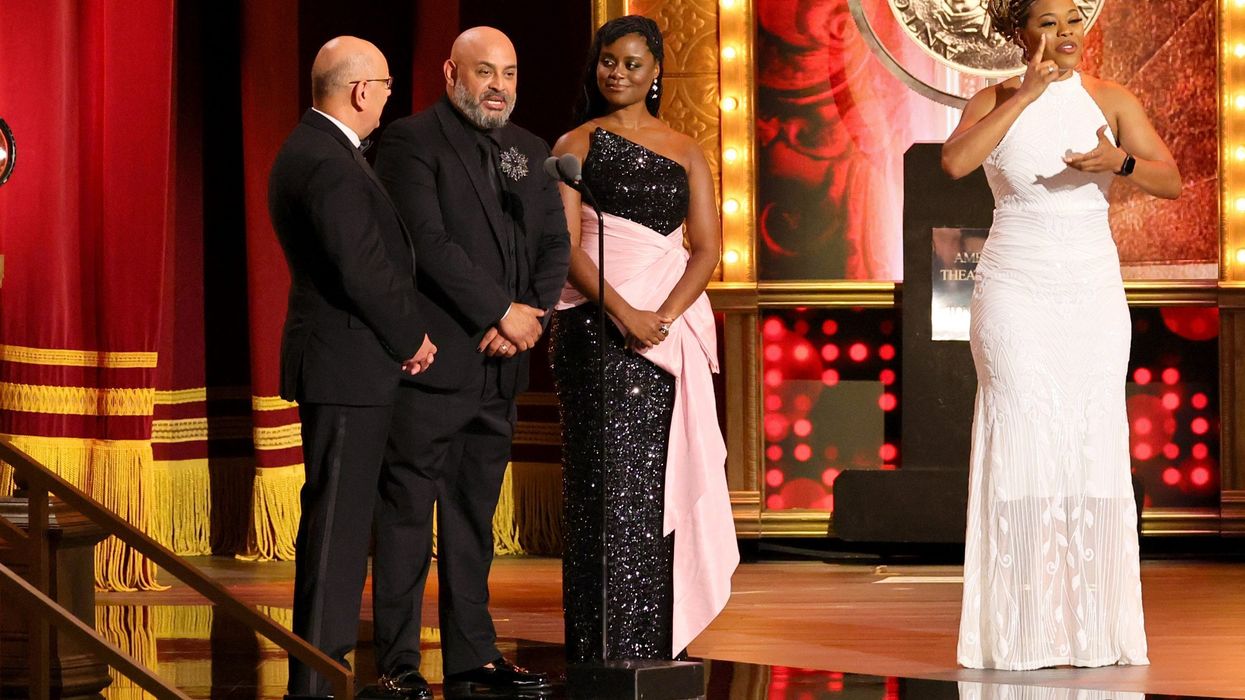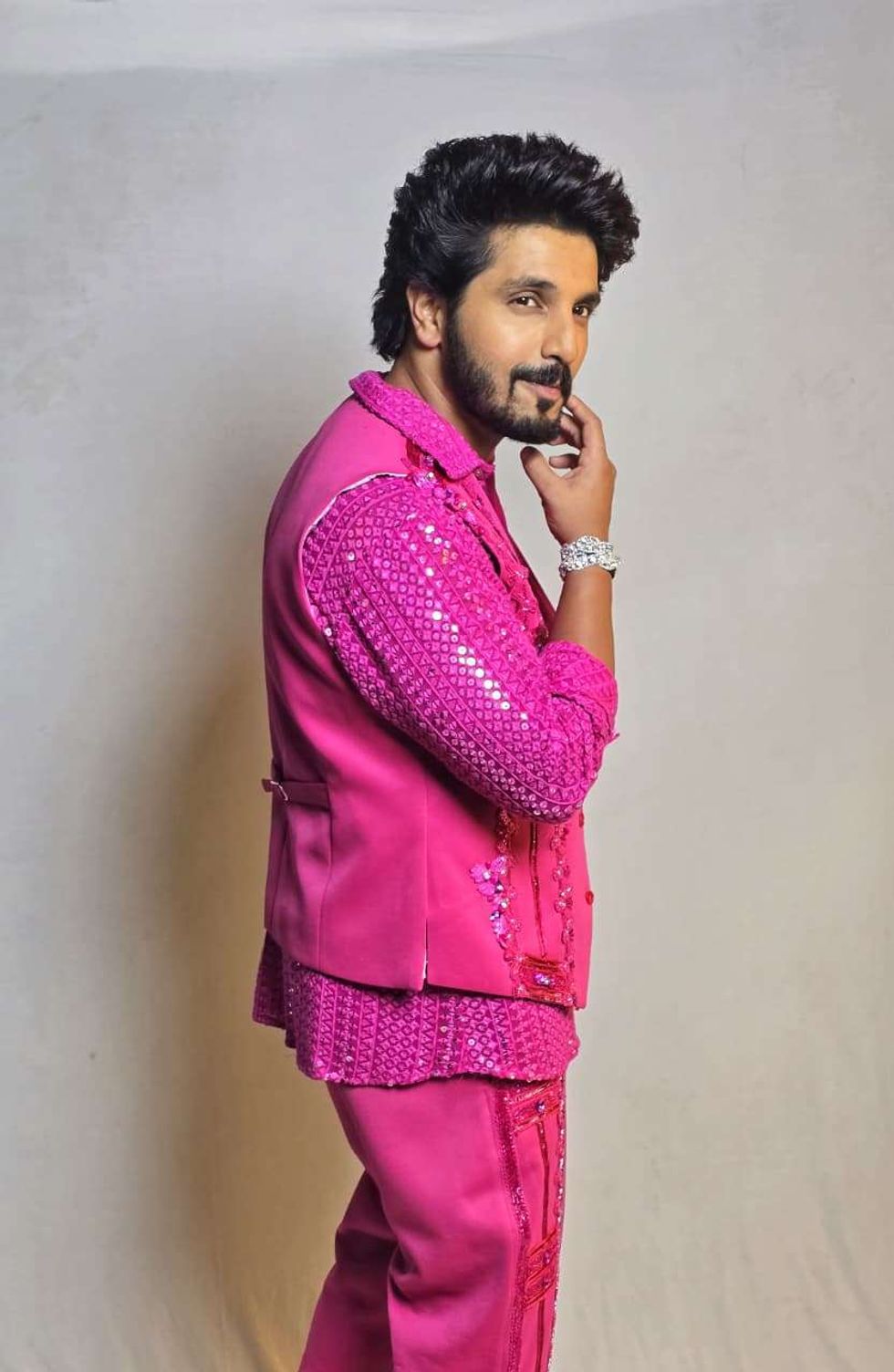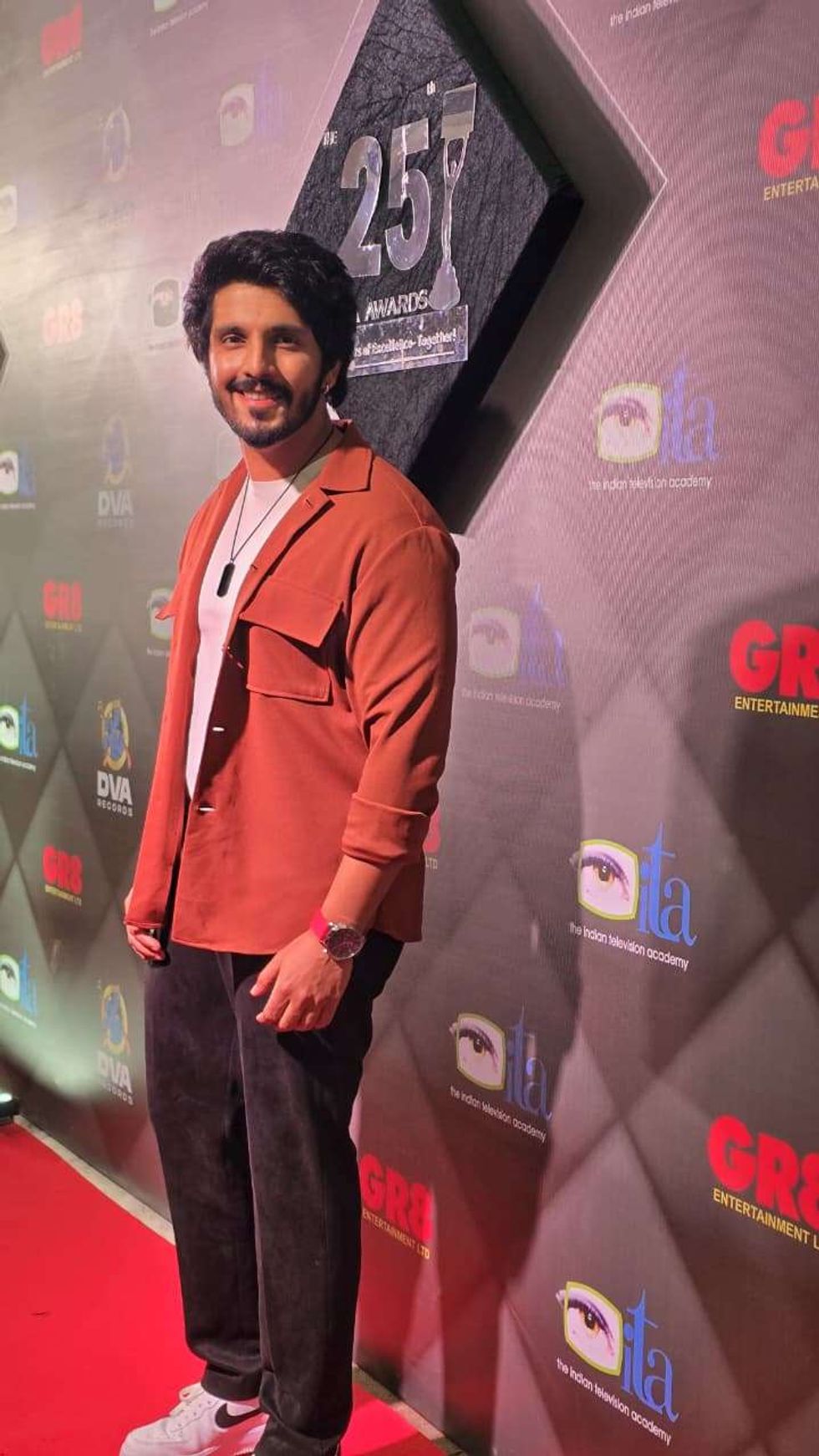The intimate, funny-sad musical Kimberly Akimbo nudged aside splashier rivals on Sunday to win the musical crown at the Tony Awards on a night when Broadway flexed its creative muscle amid the Hollywood writers' strike and made history with laurels for nonbinary actors J. Harrison Ghee and Alex Newell.
Kimberly Akimbo, with songs by Jeanine Tesori and a book by David Lindsay-Abaire, follows a teen with a rare genetic disorder that gives her a life expectancy of 16 navigating a dysfunctional family and a high school romance.
Victoria Clark, as the lead in the show, added a second Tony to her trophy case, having previously won one in 2005 for The Light in the Piazza.
The musical took home a leading five awards, including best book and score.
Earlier, Tony Awards history was made when Newell and Ghee became the first nonbinary people to win Tonys for acting.
Last year, composer and writer Toby Marlow of Six became the first nonbinary Tony winner.
The soulful Ghee stunned audiences with their voice and dance skills, playing a musician — on the run from gangsters — who tries on a dress and is transformed.
Newell, who plays Lulu — an independent, don't-need-no-man whiskey distiller in Shucked — has been blowing audiences away with their signature number, Independently Owned. They won for best featured actor in a musical.
Tom Stoppard's Leopoldstadt, which explores Jewish identity with an intergenerational story, won best play, also earning wins for director Patrick Marber, featured actor Brandon Uranowitz and Brigitte Reiffenstuel's costumes.
The British-Czech playwright, who now has five best play Tony Awards, joked he won his first in 1968 and noted that playwrights were “getting progressively devalued in the food chain” despite being “the sharp ends of the inverted pyramid.”
Second-time Tony Awards host Ariana DeBose opened a blank script backstage before dancing and leaping her way to open the main show with a hectic opening number that gave a jolt of electricity to what is usually an upbeat, safe, and chummy night. The writers' strike left the storied awards show honoring the best of musical theater and plays without a script.
Winners demonstrated their support for the striking writers either at the podium or on the red carpet with pins. Miriam Silverman, who won the Tony for best-featured actress in a play for The Sign in Sidney Brustein's Window, ended her speech with: “My parents raised me to believe in the power of labor and workers being compensated and treated fairly. We stand with the WGA in solidarity!”
Jodie Comer, the three-time Emmy-nominated star of Killing Eve won leading actress in a play for her Broadway debut, the one-woman play Prima Facie, which illustrates how current laws fail terribly when it comes to sexual assault cases.
Sean Hayes won lead actor in a play for Good Night, Oscar,” which dramatizes a long night's journey into the scarred psyche of pianist Oscar Levant, now obscure but once a TV star. “This has got to be the first time an Oscar won a Tony,” Hayes cracked.
Suzan-Lori Parks' Topdog/Underdog, a Pulitzer Prize-winning play about sibling rivalry, inequality, and society's false promises, won the Tony for best play revival. She thanked director Kenny Leon and stars Corey Hawkins and Yahya Abdul-Mateen II.
Many of the technical awards — for things like costumes, sound, lighting, and scenic design — were handed out at a breakneck pace during a pre-show hosted by Skylar Astin and Julianne Hough, allowing winners plenty of airtime for acceptance speeches but little humor.
The pre-show telecast on Pluto featured some awkwardly composed shots and some presenters slipped up on certain words. The tempo was so rapid, it ended more than 10 minutes before the main CBS broadcast was slated to start.
John Kander, the 96-year-old composer behind such landmark shows as Chicago, Cabaret, and The Scottsboro Boys, was honored with a special lifetime award.
Jennifer Grey handed her father, Cabaret star Joel Grey, the other lifetime achievement Tony.
Echoing the theme of antisemitism, Parade — a doomed musical love story set against the real backdrop of murder and lynching in pre-World War I Georgia that won Tonys as a new musical in 1999 — won for best musical revival, with Michael Arden winning for best musical director.
It all took place at the United Palace Theatre, in the Washington Heights neighborhood of Manhattan — a new venue for the ceremony, many miles from Times Square and the theater district.






 Kanwar Dhillon Reflects on 10 Career-Defining Moments
Kanwar Dhillon Reflects on 10 Career-Defining Moments  From Debut to Awards: Kanwar Dhillon’s Journey
From Debut to Awards: Kanwar Dhillon’s Journey  Kanwar Dhillon Looks Back on a Decade of Work
Kanwar Dhillon Looks Back on a Decade of Work






